When Julie J glides into Gran Torino in Brooklyn, she wears a silken headscarf and a Missy Elliott sweatshirt and has Alexis Bittar hoops dangling from her ears. Many might recognize the drag artist, writer, and actress from her journey through the “Bittarverse” over the last year and half, playing the long-suffering Hazel/Jules to Patricia Black’s Upper East Side terror Margeaux in Bittar’s wildly successful social media series. Over the last several years, however, Julie has developed an abiding role as a beloved performer and community organizer in Brooklyn.
As a drag artist, Julie has also been featured by Maybelline, on MSNBC, and in The Washington Post, to name a few. She has received artist fellowships from La MaMa Experimental Theatre. She won Miss Bushwig in 2023 at the country’s largest drag festival of the same name, and Entertainer of the Year at New York’s Glam Awards in 2024, which honors achievements in nightlife performance and programming. Since March 2023, she has been the founder and co-producer, with Aaron Hock, of marathon drag benefit Stand Up NYC, which has since raised over $110,000 for organizations like Advocates for Trans Equality, Black Trans Femmes in the Arts, the Hetrick-Martin Institute, and many others.
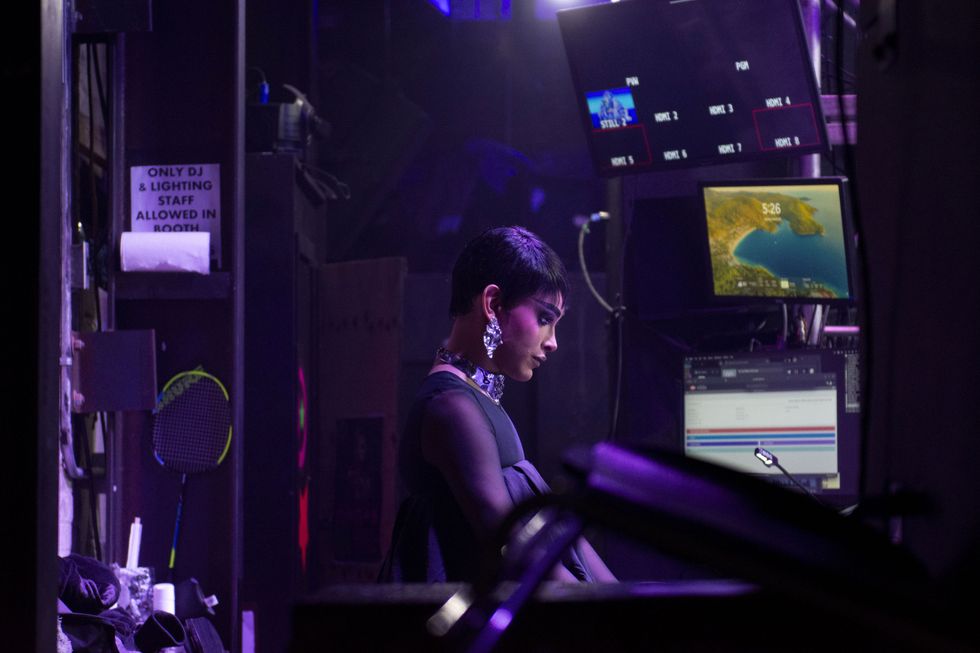
In March 2023, Tennessee governor Bill Lee signed the “Adult Entertainment Act” into law, which made it “a Class A misdemeanor offense for a person to engage in an adult cabaret performance on public property or in a location where the adult cabaret performance could be viewed by a person who is not an adult,” the bill wrote, and “establishe[d] that a second or subsequent such offense is a Class E felony.” “Adult cabaret” was defined “as a performance in a location other than an adult cabaret that features topless dancers, go-go dancers, exotic dancers, strippers, male or female impersonators who provide entertainment that appeals to a prurient interest, or similar entertainers, regardless of whether or not performed for consideration.” Because the strokes around “male and female impersonation” were so broad and left undefined, the language also challenged the existence of transgender individuals. “The language is vague enough that it leaves it in the hands of each individual jurisdiction to define what counts as a ‘male or female impersonator,’” Dahron Johnson, of the Tennessee Equality Project, toldThe New York Times. In a cultural moment where transgender individuals and drag artists were (and are still) already fighting for their rights and their lives, many were scared of what this meant for their futures.
That month, Julie J woke up with the urge to do something about it. “There was this electrifying feeling, this fire, that something needs to be done. We need to make something now, we need to put something together, because if we don't do it now, things are going to start getting much worse,” she says when we meet, a few days before the next Stand Up NYC event. “I imagine it's how people feel when they write books or when they decide to run for public office, this feeling of, someone else could do it, but they're not, so I have to do it. This story hasn't been told, so I have to tell it, or people aren't paying attention to this, so I have to make the noise about it.”
Stand Up NYC was born in March 2023 and that single show raised over $25,000 for the ACLU of Tennessee, Black Trans Liberation, and the Trans Formations Project. Several times a year since then, Stand Up NYC gathers together drag artists from across New York to raise money for organizations in need.
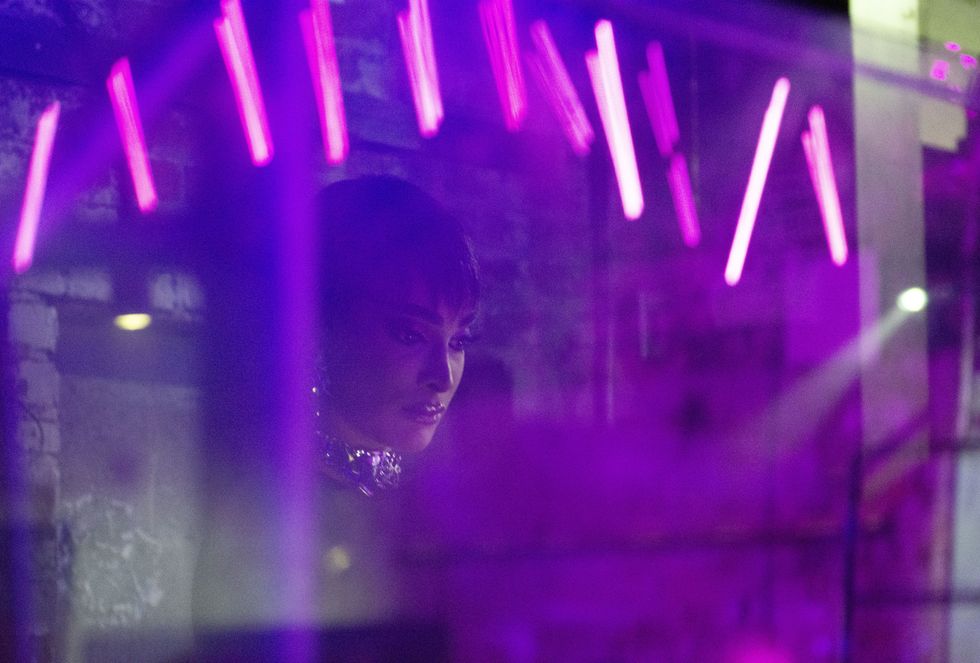
It's March 2025 and another Stand Up NYC show is upon us. It’s a little after 5 p.m. on Sunday, March 30 when Julie and Aaron arrive at 3 Dollar Bill in Brooklyn. There’s a long night ahead of them as co-producers of their latest show, which is set to start at 7 p.m. (or thereabouts). In a short black wig and long lashes, Julie’s eyes glimmer. She wears a black cocktail dress and boots, and it’s time to get to work. Julie, who carries herself with an energy and grace not unlike Diahann Carroll or Audrey Hepburn, works on the show’s tech in the DJ booth, carries a ladder, arranges seats, discusses the event with Aaron and co-host Mariyea, and greets everyone who’s volunteering that day with genuine gratitude accompanied by a hug or a loving handshake. She knows people don’t have to show up the way they do.
“Specifically with Stand Up and starting it, I have learned the power of community, of what it means to bring a group of people together for a shared goal,” she says. “In the past, because I come from a theater background, it was kind of separate. It was like, I'm doing a task, or I am expressing myself, and these people are receiving it,” she says. “The more I got involved in community organizing spaces and even had the desire to make an impact, it was like, I can make an impact as an individual, but it's much different when you can have other people with you.”
This is also a lesson she says she’s learned from drag, which itself has a storied tradition of mutual aid and activism that dates back centuries in the U.S., not to mention the rest of the world. “You can try to be a drag queen, drag king, drag thing, alone. It's very hard to do. And I think something that I quickly learned is that, especially in queer spaces, and especially in drag spaces, there's always going to be someone that's like, do you need me to zip you up? Do you need a safety pin? Do you need this? Do you need that?” she says. “And there will always be someone that has it or that can do it. That is not always a shared thing in other spaces.”
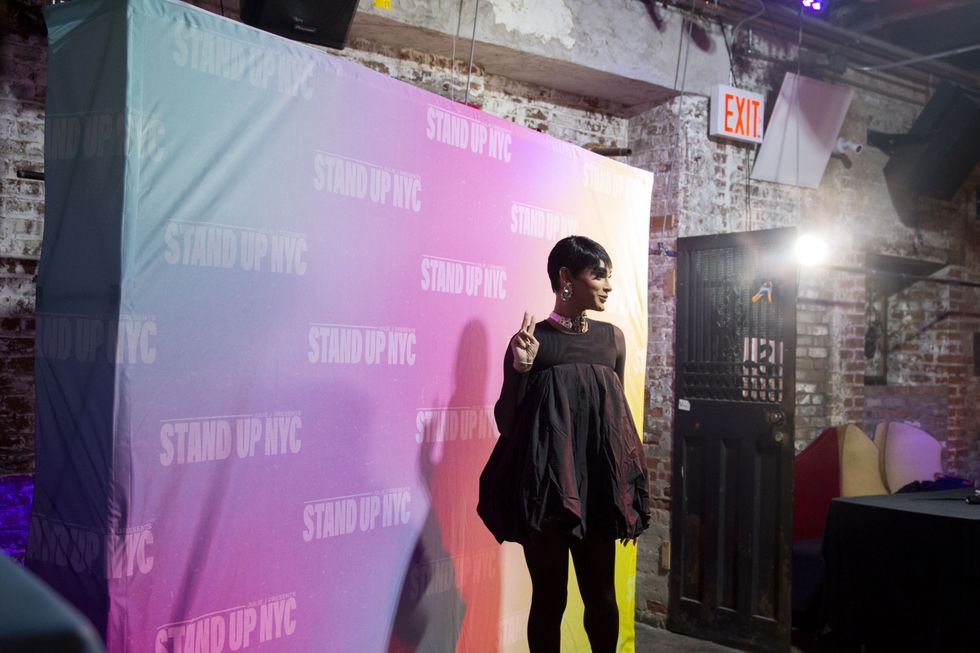
Julie’s relationship to community organizing actually starts long before Stand Up NYC, back to growing up in Texas. “My great grandparents grew up in segregation and the Jim Crow South. So, my understanding of life has always been informed by people who have had to prove their humanity or their talent or their ability,” she says. “There was always the expectation of, you need to do well in school. You need to stand up for not only yourself, but for other people who are less fortunate or have less than you do.” Understanding the relationship between civil rights, queer history and activism in college, she was further reminded of her family’s fight for rights as well. “When the opportunity presents itself, it's like my mind and my soul can't help but act on it and can't help but lean into it,” she says.
As a young queer teen, Julie remembers making a point to find other queer teens and let them know she had their backs; she remembers little queer community to speak of beyond that. In college, she found herself shaped by witnessing student activism at Sarah Lawrence College, where she studied Theatre and Literature. “When I got out of college, it was like, well, how can I keep that same momentum going? My mom has always told me, you always want to be of service to people, that's just a part of who you are,” she says. Coming from a family of teachers is also a part of it, she believes–”this kind of lineage of care, of education, of information is ingrained in my personhood,” she says.
This makes me think of an interview Andy Warhol did with Dolly Parton in 1984.
“You could be a great preacher,” he says.
“What do you mean?” Parton says. “I am a great preacher.”
Maybe it’s the same with Julie, I wonder, but with being a teacher. Being a drag artist is not unlike being a teacher, after all. She sees it this way, too. “Especially now, whether we want to or not, [we] are teaching people that gender expansiveness is not to be feared, that it's not something that is rooted in evil,” Julie says. Rather, it’s the opposite. “It's a celebration, it's joy, it's rooted in appreciation…we're teaching how to express joy, how to celebrate individuality.”
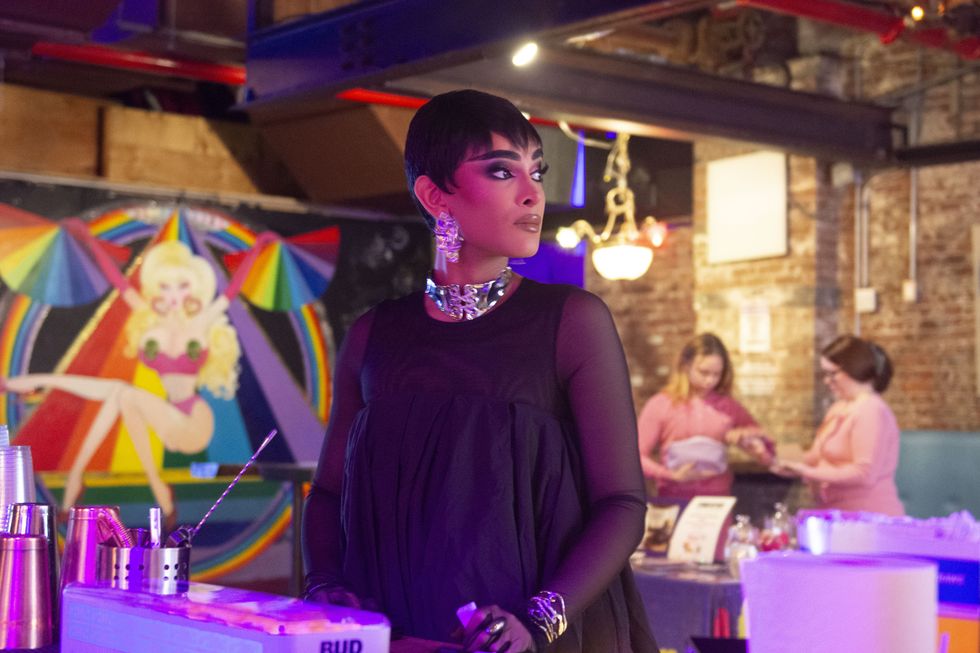
To create space for people to do this onstage and raise funds for charitable organizations in a cultural moment such as this is its own act of radicality and love. Doing all of this for other people as you navigate your own life and a burgeoning career is another matter. And while it's a successful career, it’s not always easy to balance, Julie says: “I think that a lot of a lot of community organizers and activists will relate to this, that there is sometimes a point in time when the the the darkness or the thing that you're fighting so hard against, feels really close, and it feels like you're taking a really big risk doing the things that you're doing.” She continues, “I felt that way about when I spoke at MSNBC. Like, oh gosh, I'm making myself a target for the right-wing media and this side of the world that has no desire to see someone like me in a public place.” But doing Stand Up NYC made her think back to her childhood in Texas, and what she would have wanted then as an openly queer child in Catholic school. “There is someone who is that age now, who is looking to me and is saying, well, if she can do it, then I can, too. And I always have wanted to be the person that younger Julie wanted to look towards.”
Julie’s celebrated turn as Hazel will continue into the immediate future, and in the meantime it’s created opportunities for her at New York Fashion Week, in the upcoming campy Tina Romero horror film Queens of the Dead; and in essay contributions to the forthcoming HarperOne book No Tea, No Shade: Life as a Drag Queen. She also continues to co-produce Sylvester, “The All Black Experimental Drag Variety Show,” with Voxigma Lo and Paris Alexander. The next Stand Up NYC will be June 19. Julie’s solo show, as yet untitled, will run at lauded off-off-Broadway theatre La MaMa in 2026.
“Not that my work has ever been specifically about being a Black trans person, [but] I think I'm more intentional now about making work that just speaks to my human experience. When I'm making work now I'm saying, ‘I am a human being that happens to be x, y and z,’ rather than ‘I am x y and z and and I need to validate my humanity,’” she says. “My humanity is not up for question, that part of it is guaranteed. There are some parts of it that are decorated or that might be more unique than, say, your humanity, but they are just as valid.”
When the lights come up at Stand Up NYC, Julie and co-host Mariyea introduce the show, its mission, and soon, its bevy of performers. Throughout the night there are wild cheers. Money’s thrown and litters the stage like green confetti. People applaud, and at least one wears Julie J merch.
Partway through the evening, the performer Dawn takes the stage with a mix of Chappell Roan songs, and encourages the audience to sing along. The lyrics to “Pink Pony Club” and “Good Luck, Babe!” pour out of mouths. The feeling is of being swathed in joy, in love, in community.
As a writer, I regularly crawl into my own little cave, isolated from people, to do my work. Tonight, though, I understand the word community a little better. Because of Stand Up NYC, we all have the opportunity to know what it looks like, too.
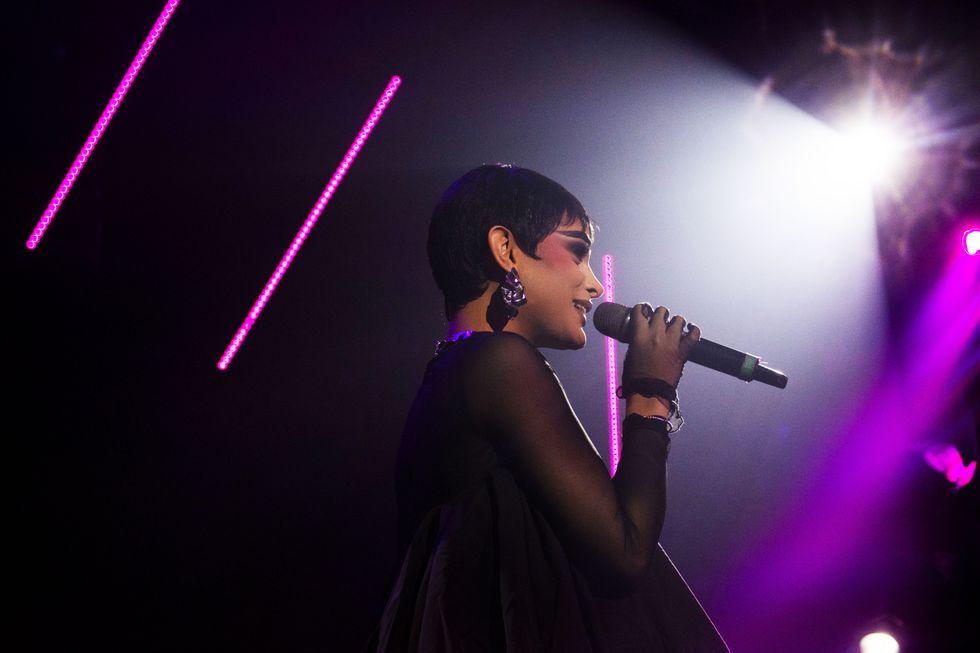






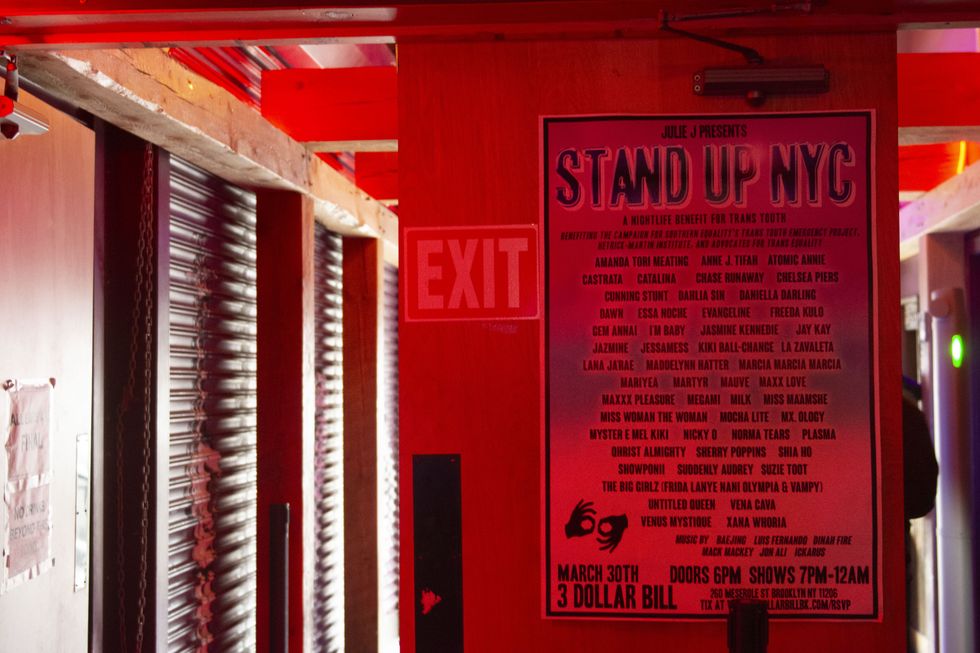
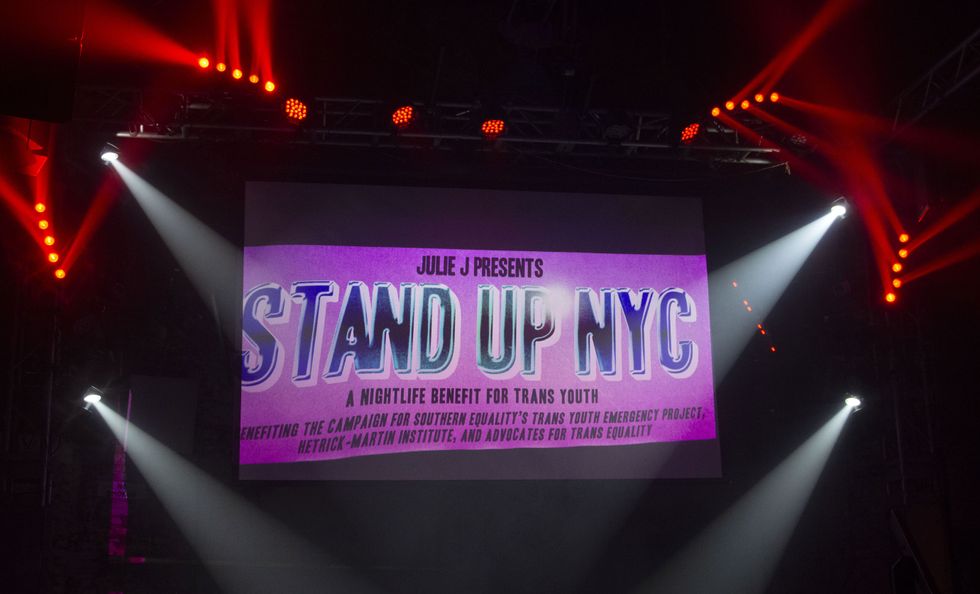
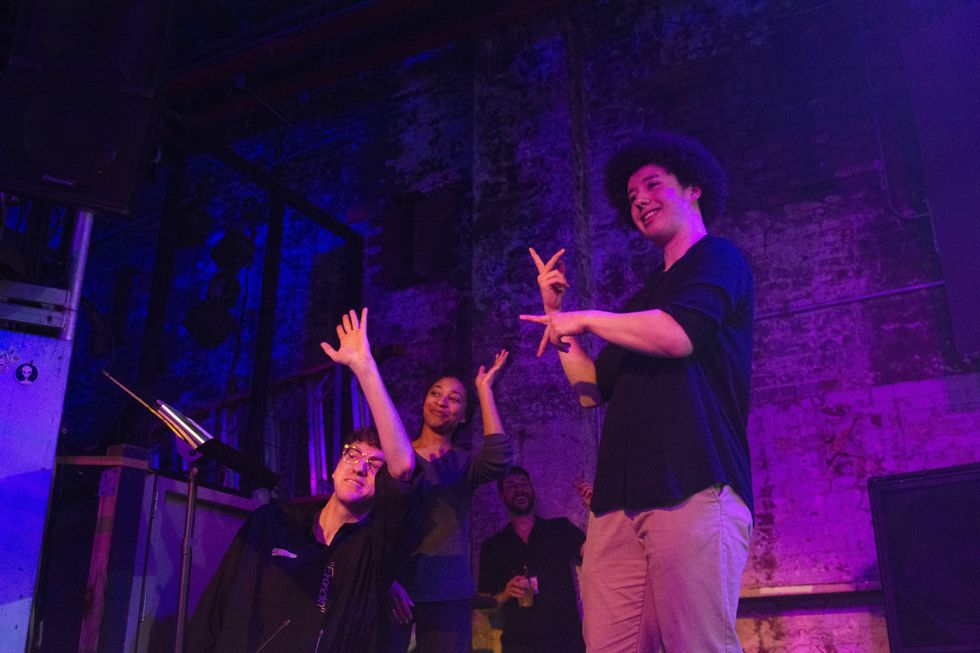
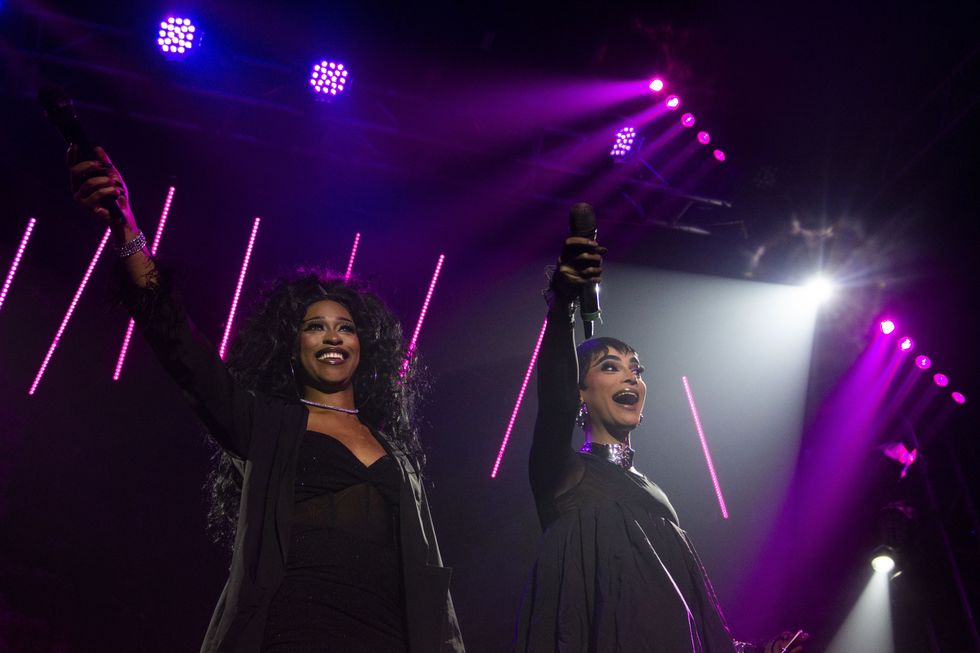
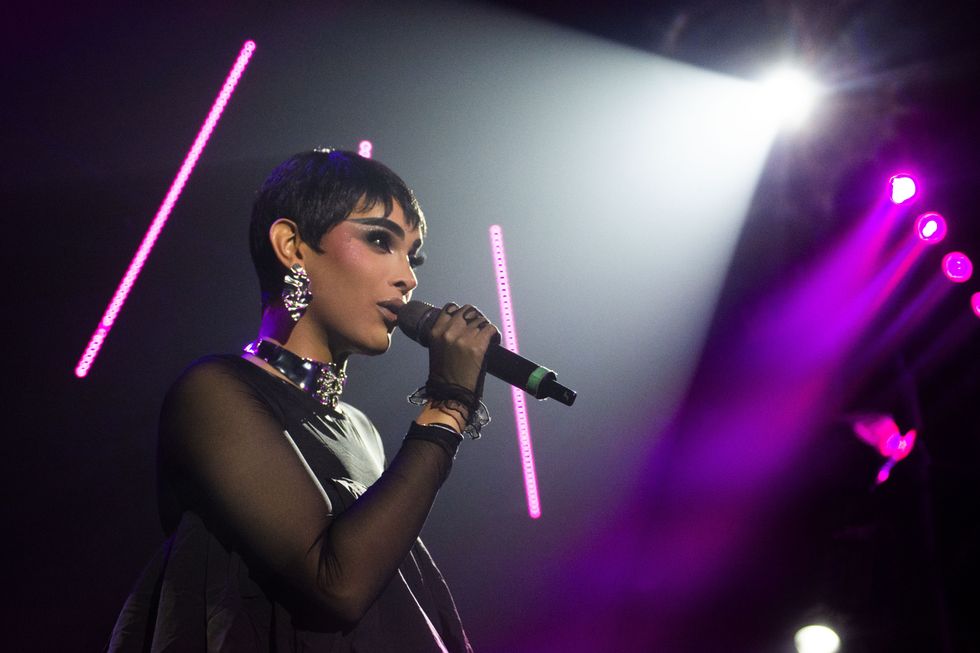
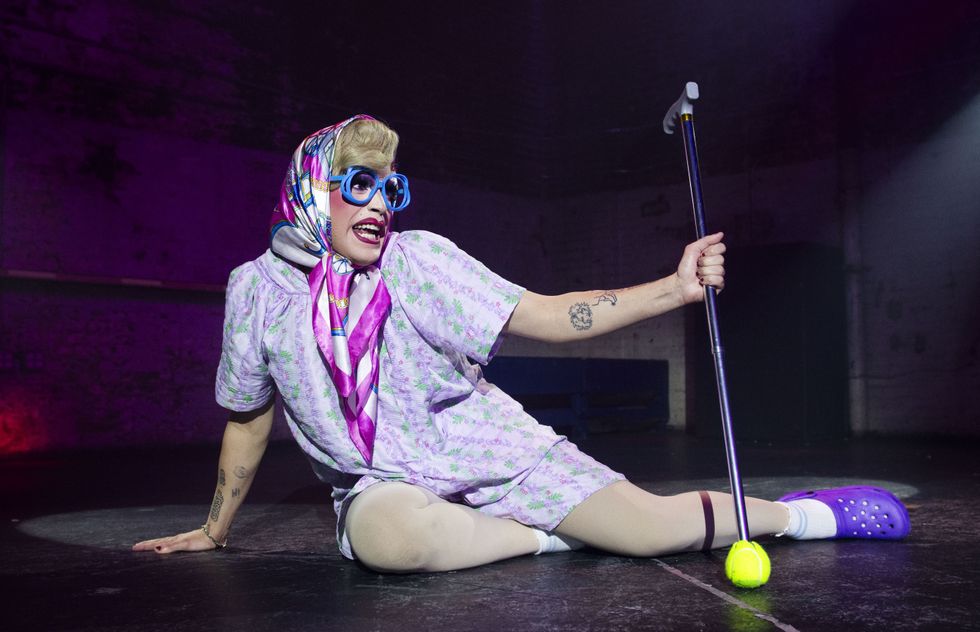
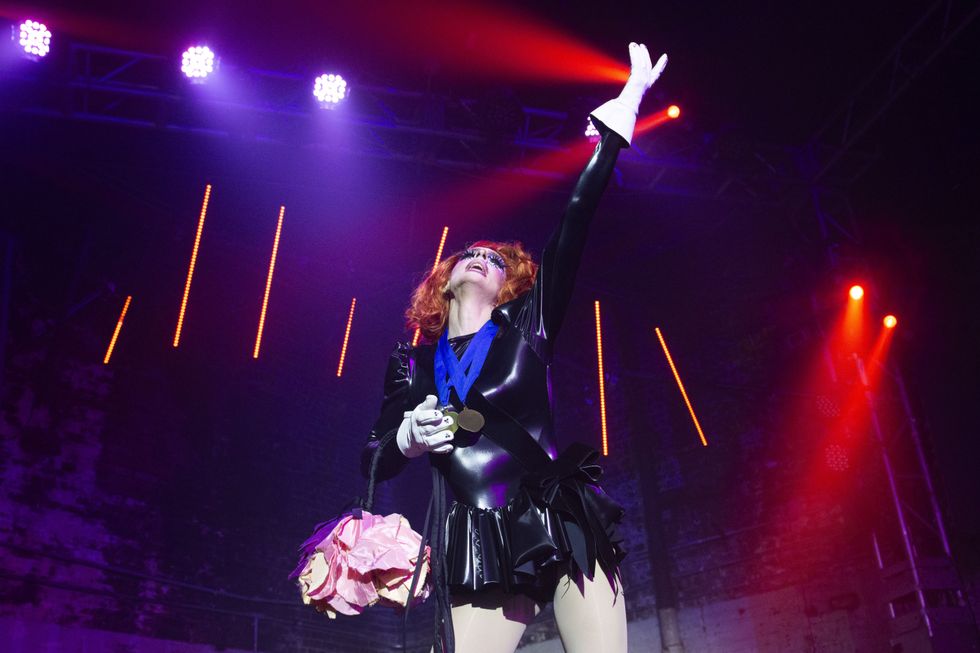
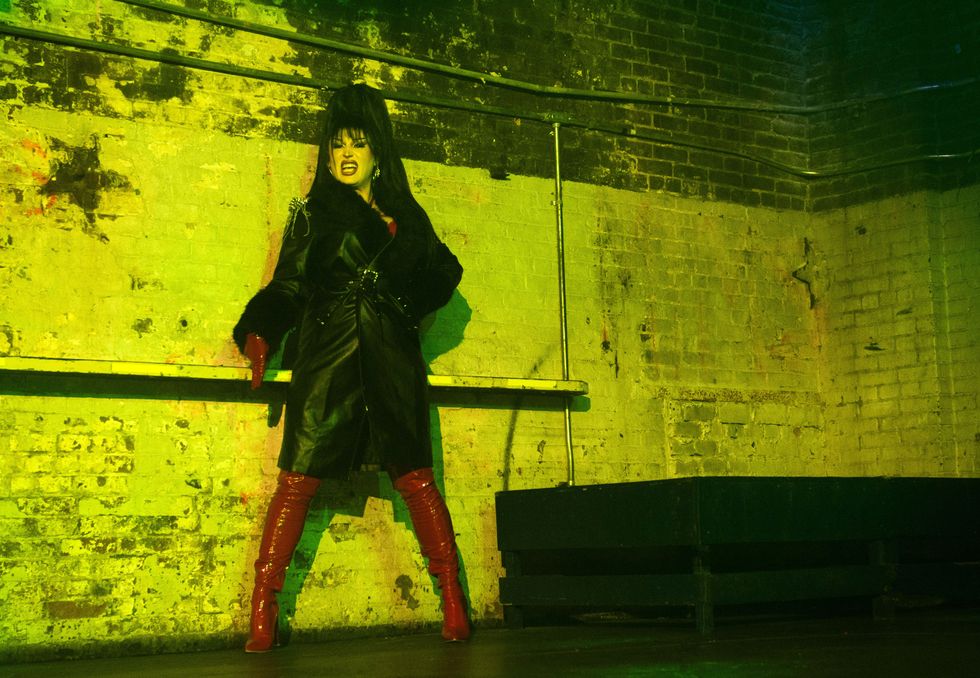
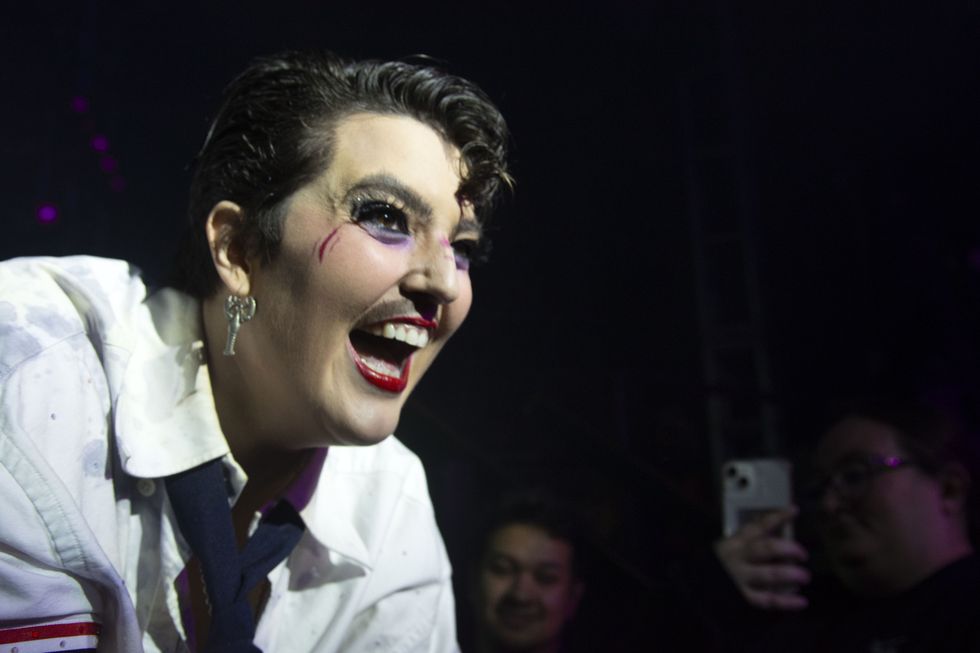
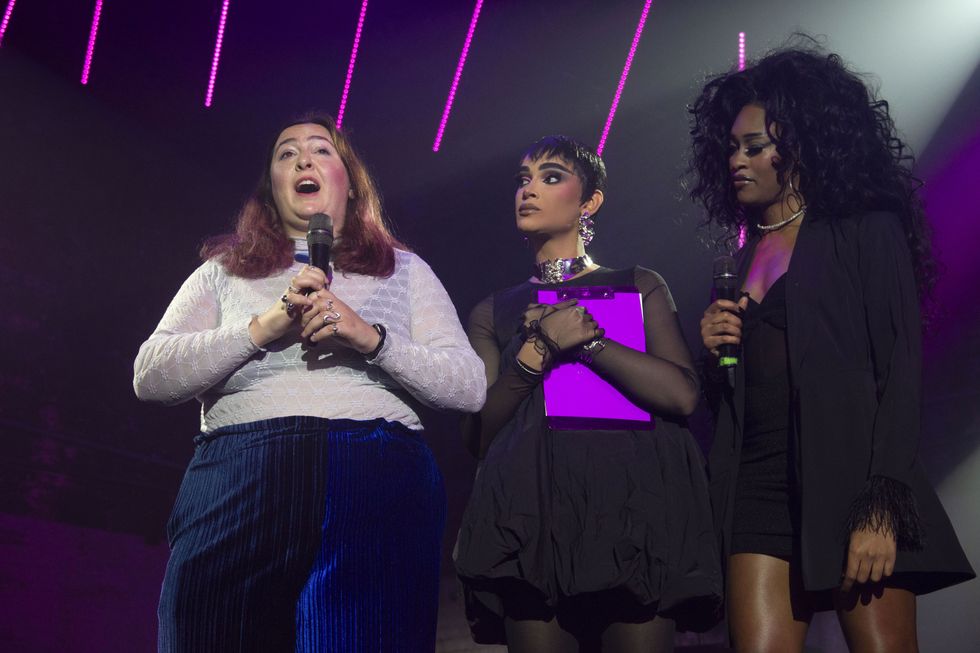
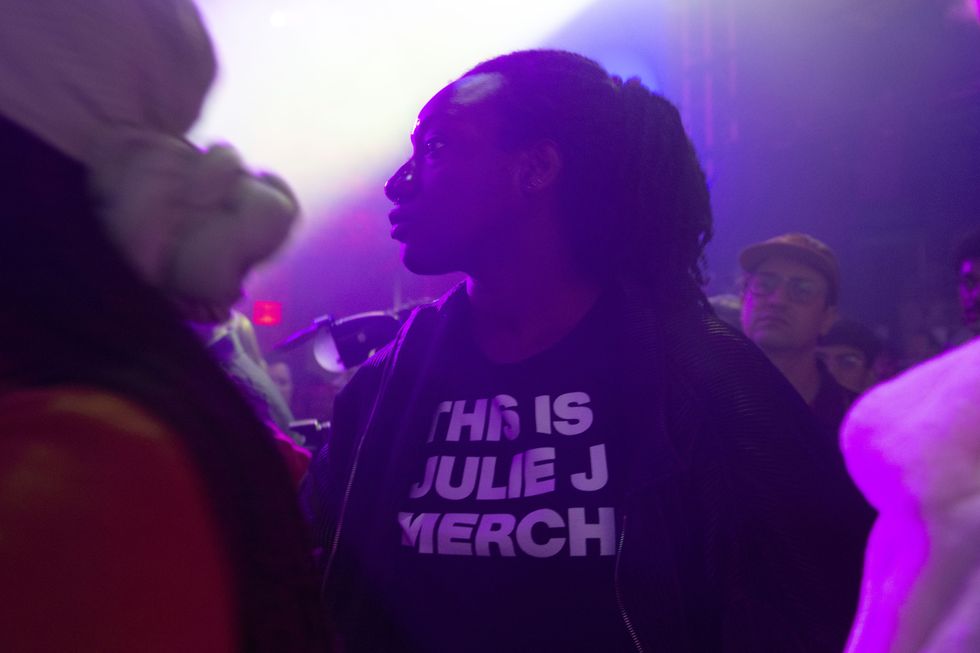
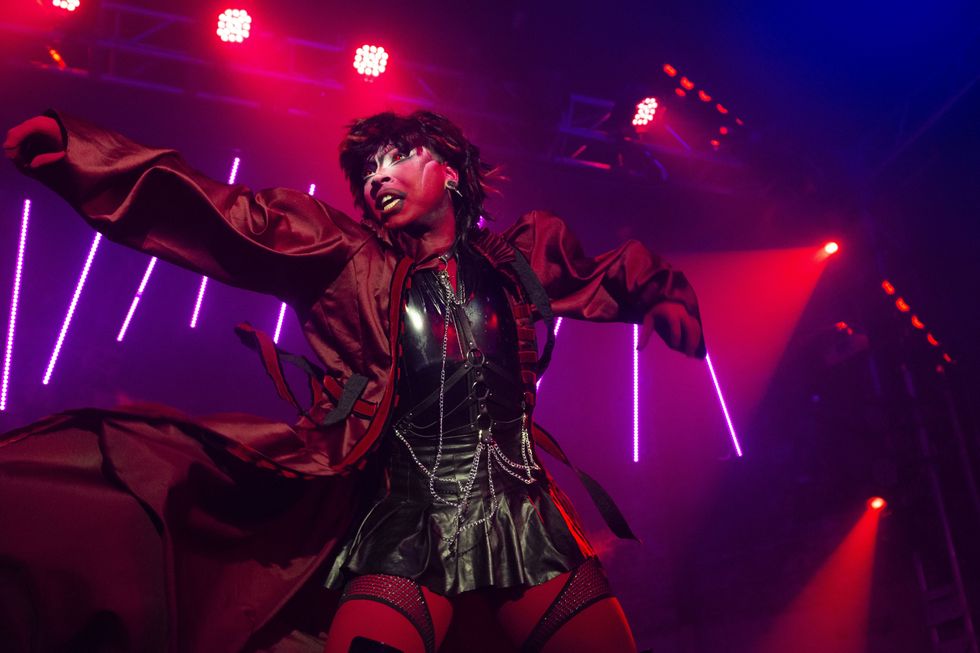
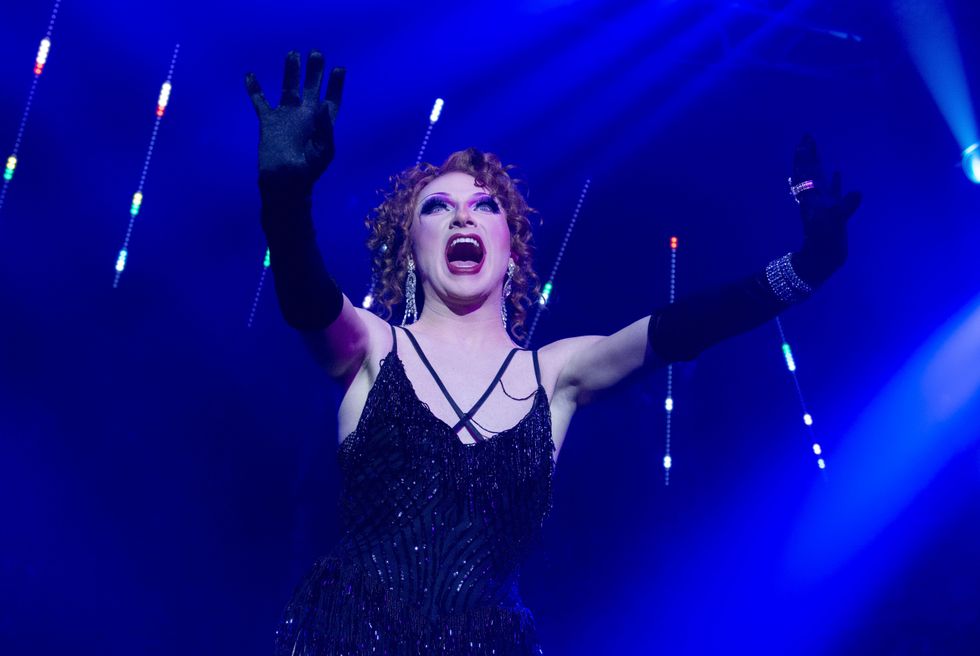
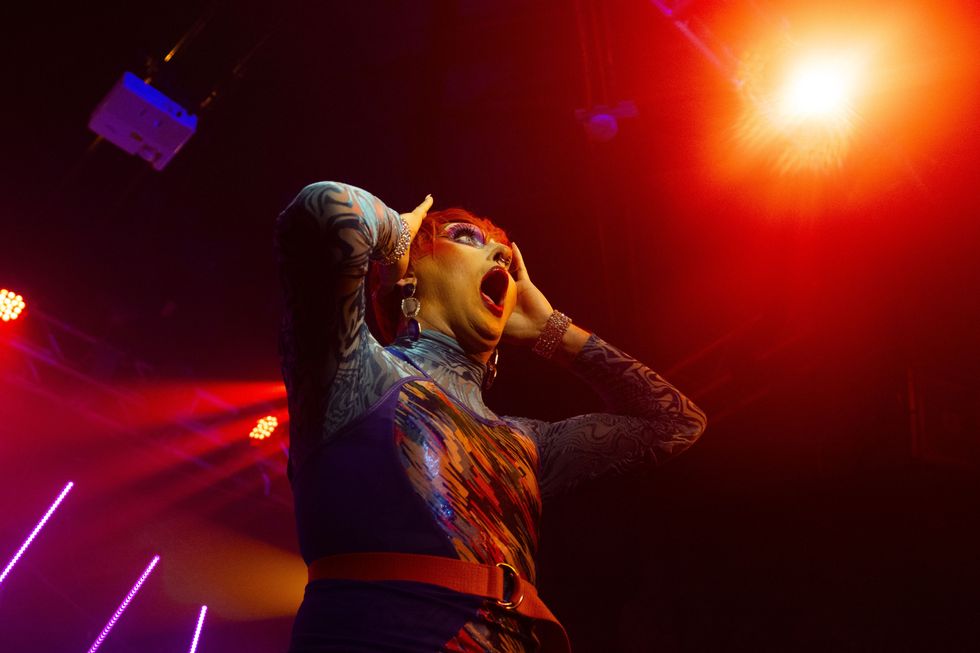
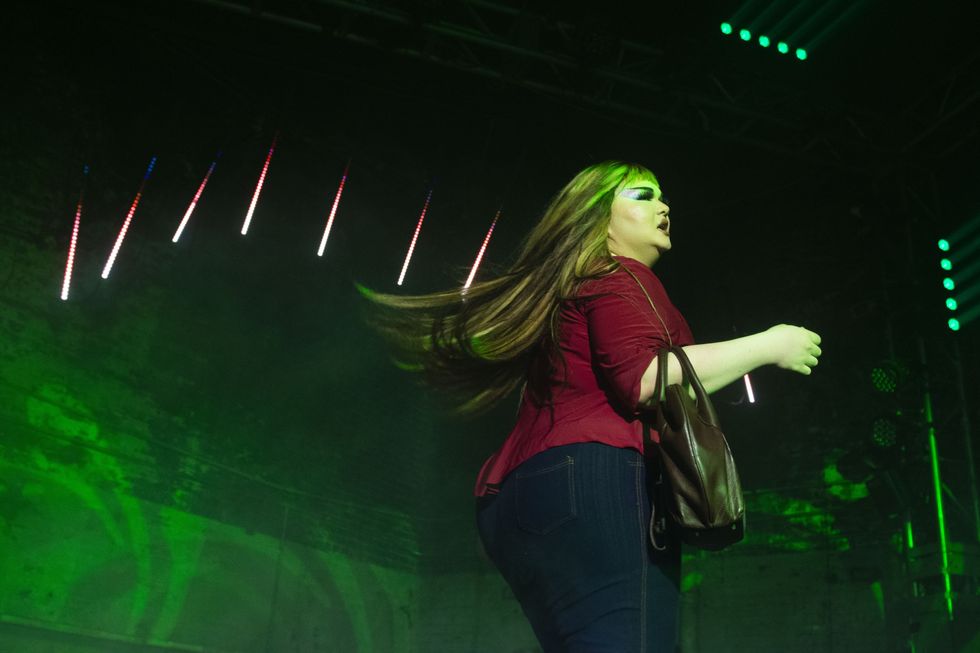
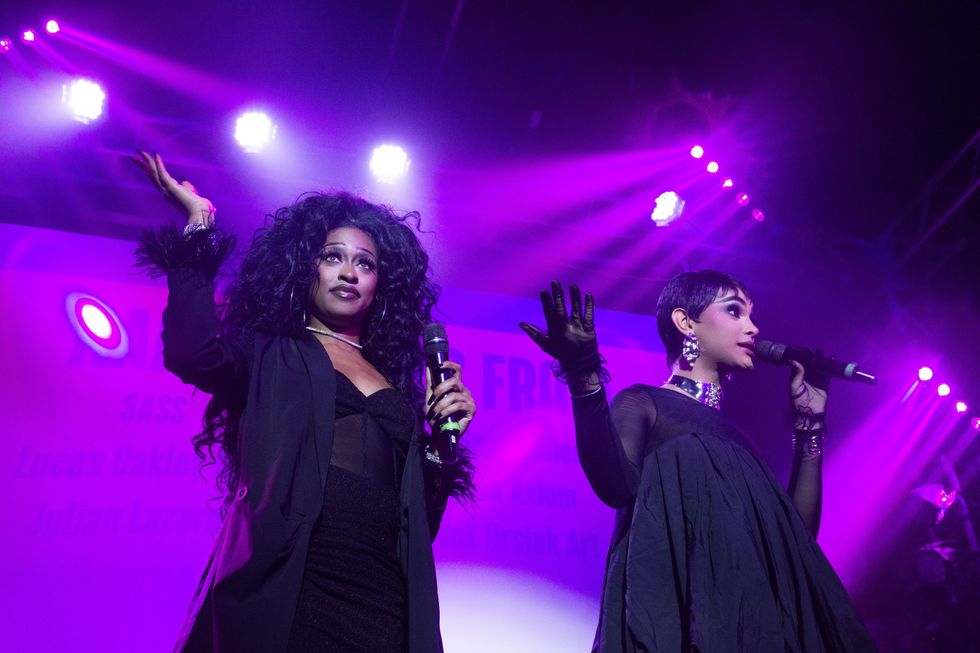
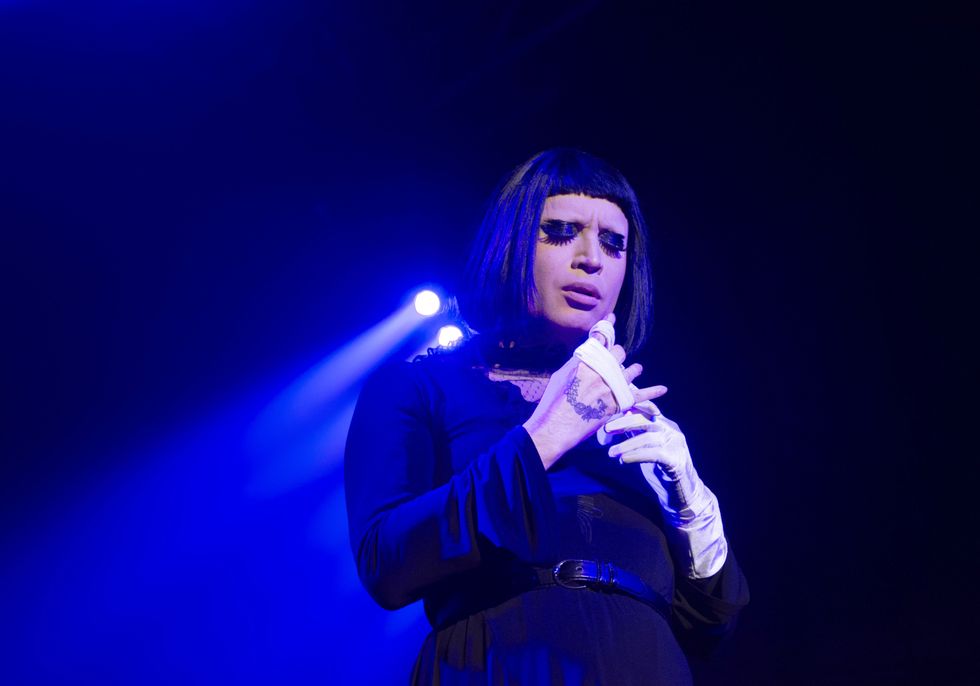
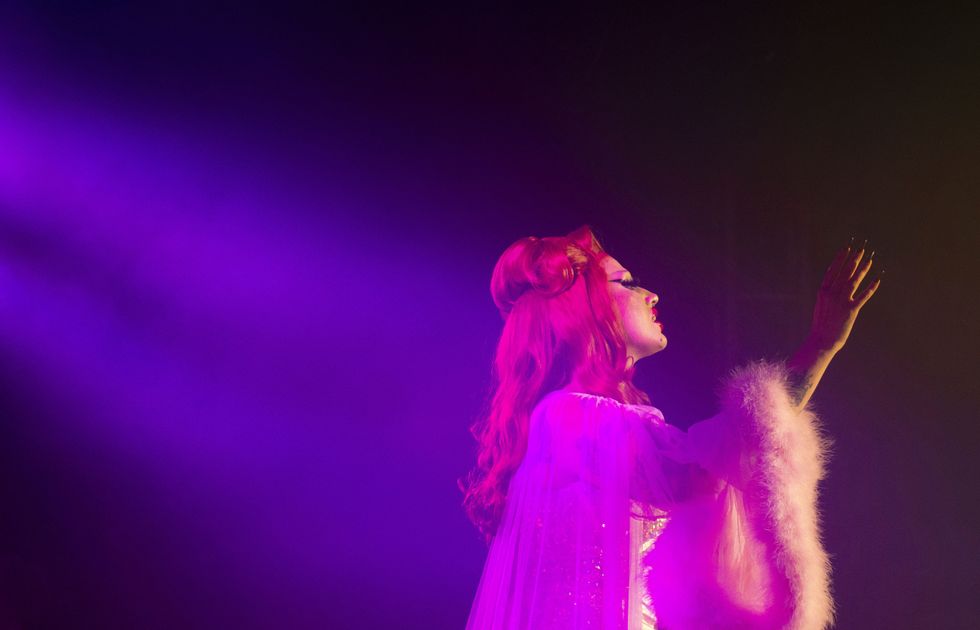
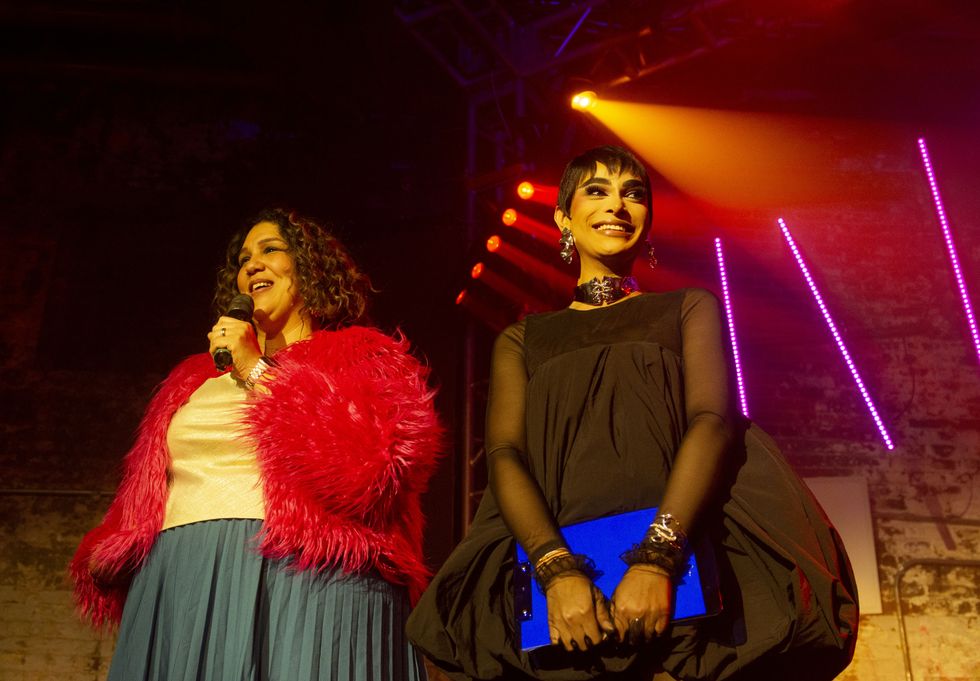
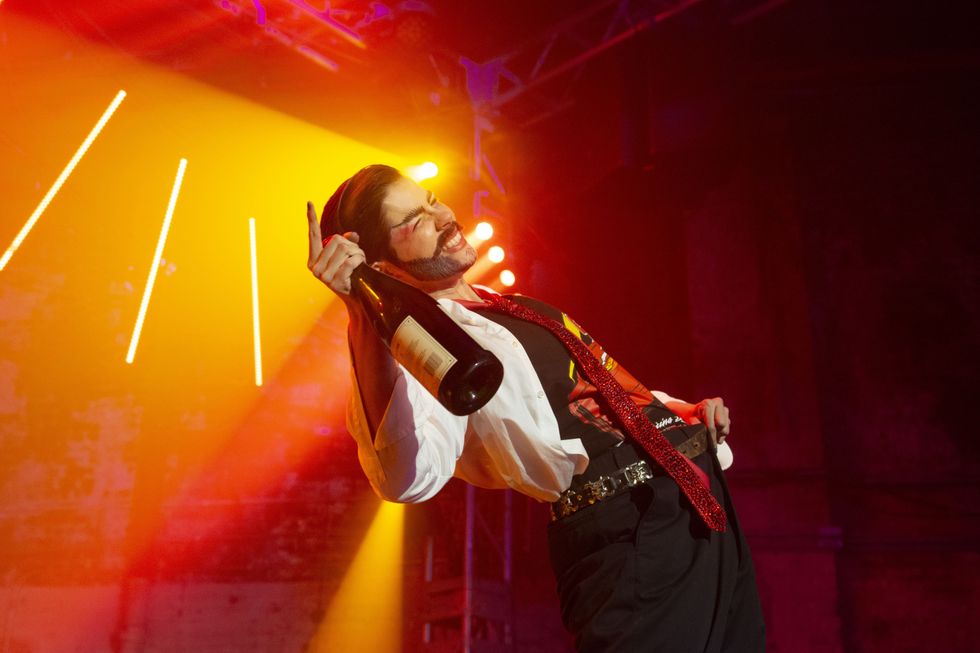
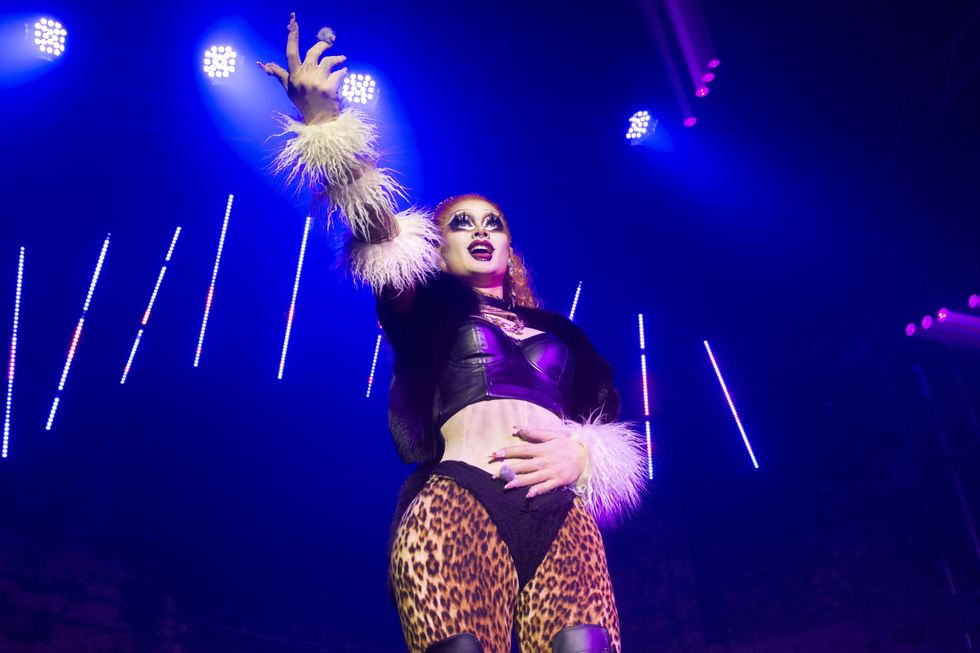
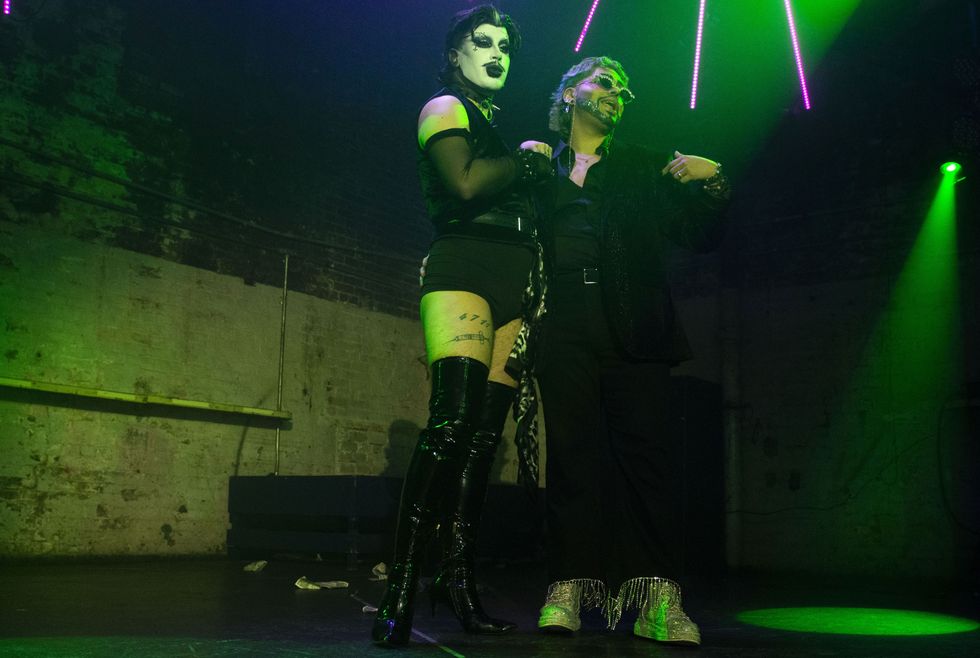
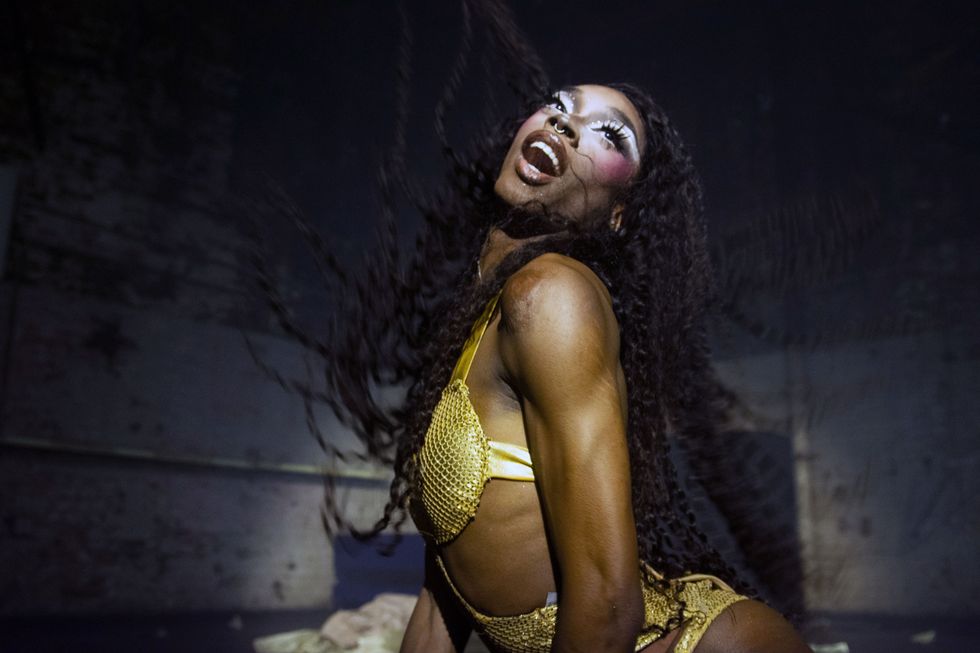


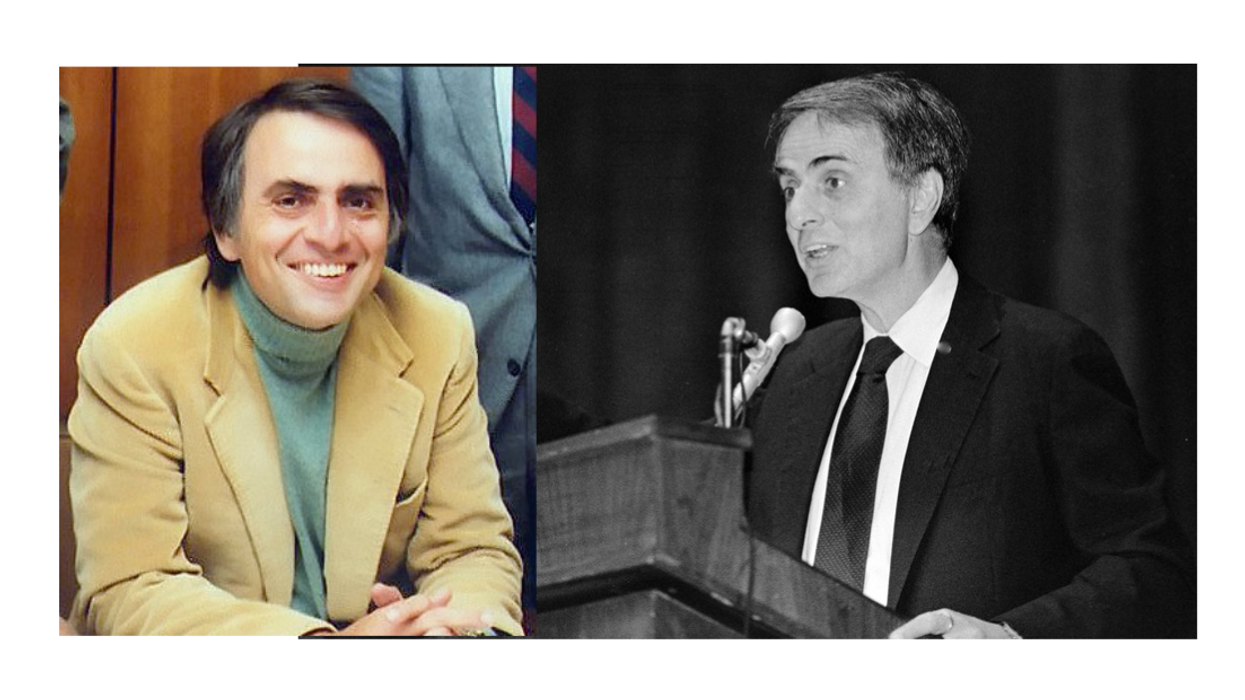








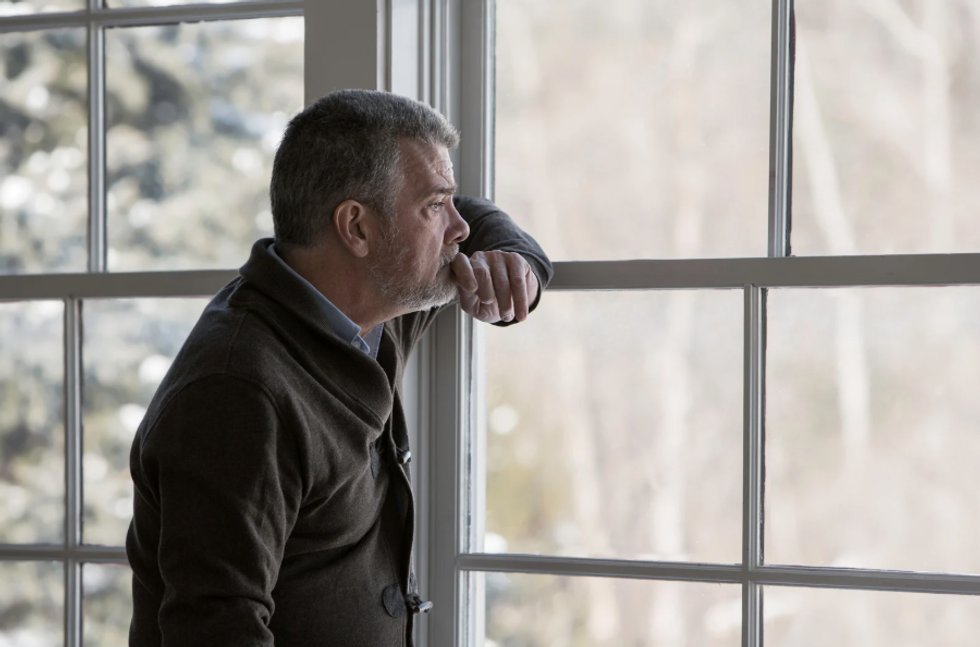 A grieving fatherRepresentative photo by Canva
A grieving fatherRepresentative photo by Canva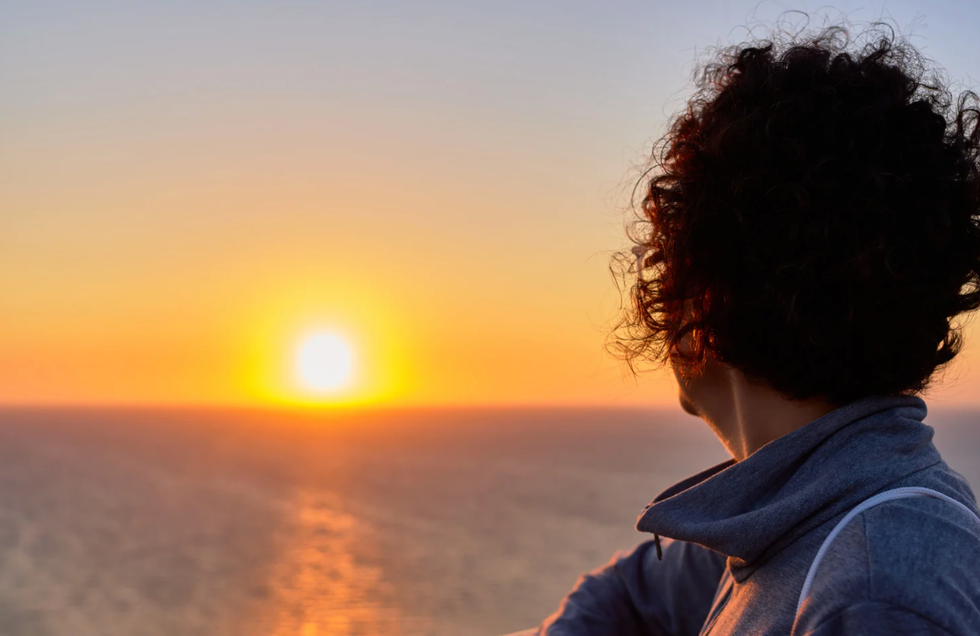 A woman takes in a beautiful sunsetCanva
A woman takes in a beautiful sunsetCanva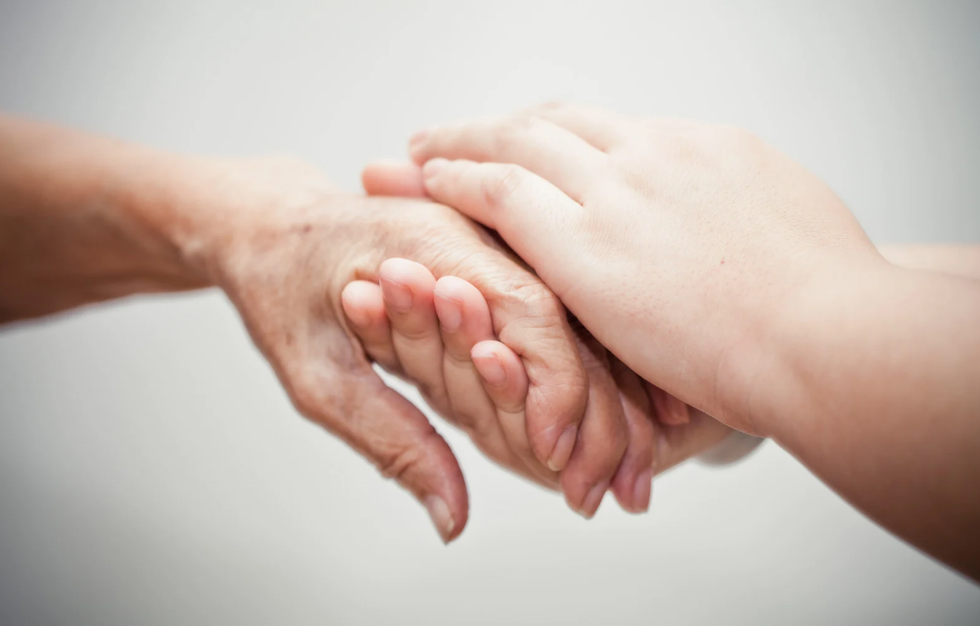 Holding hands with a loved one.Canva
Holding hands with a loved one.Canva




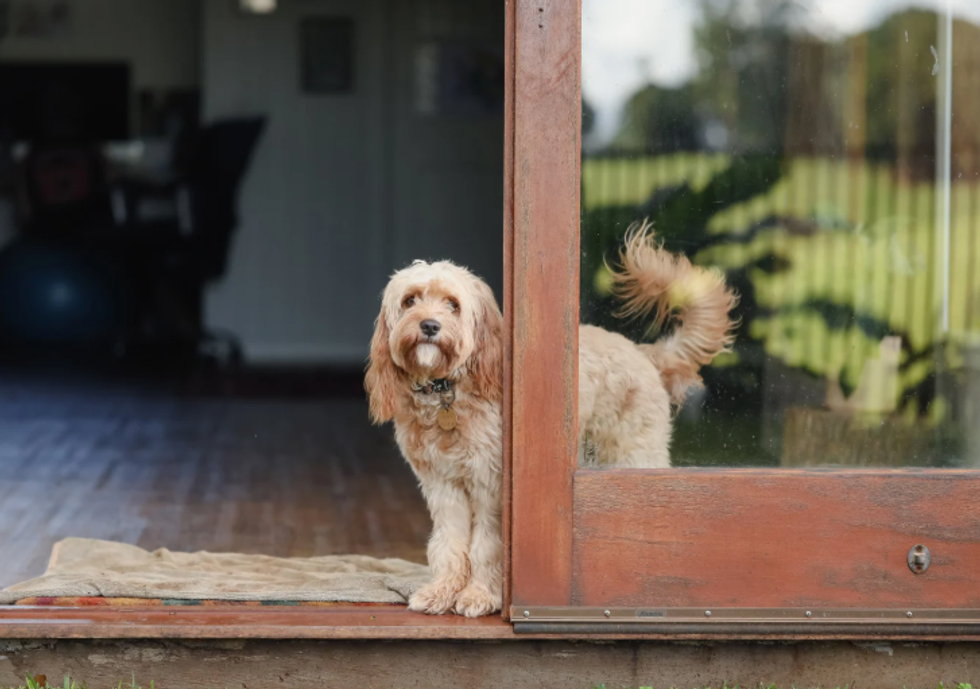 Lonely dog waits for owner.
Lonely dog waits for owner. 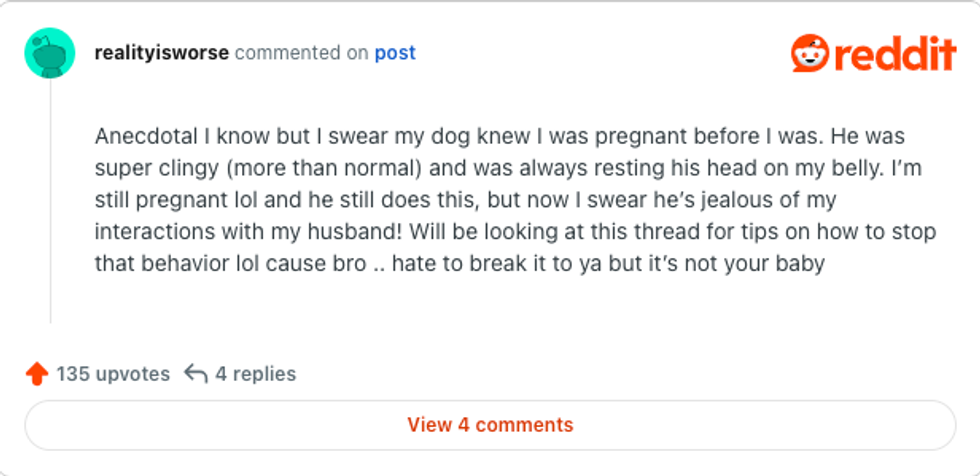 Commenters were in supportImage via Reddit
Commenters were in supportImage via Reddit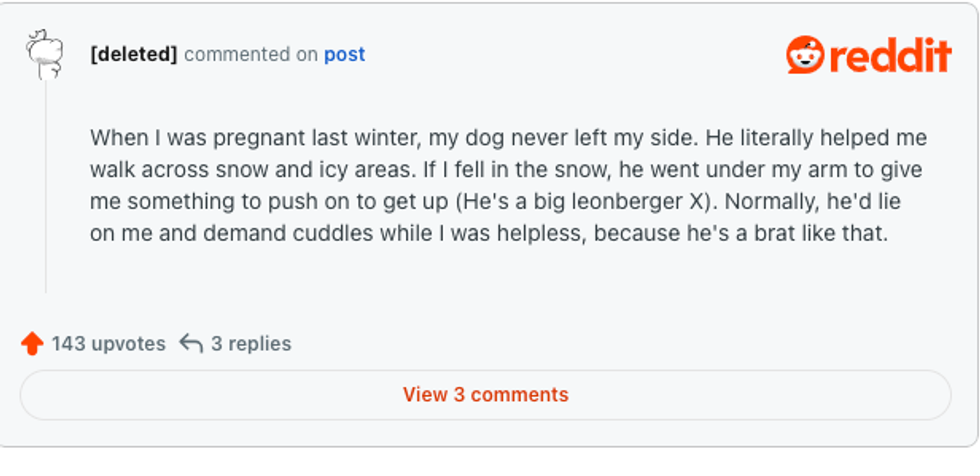 Commenters on Reddit.Image via Reddit
Commenters on Reddit.Image via Reddit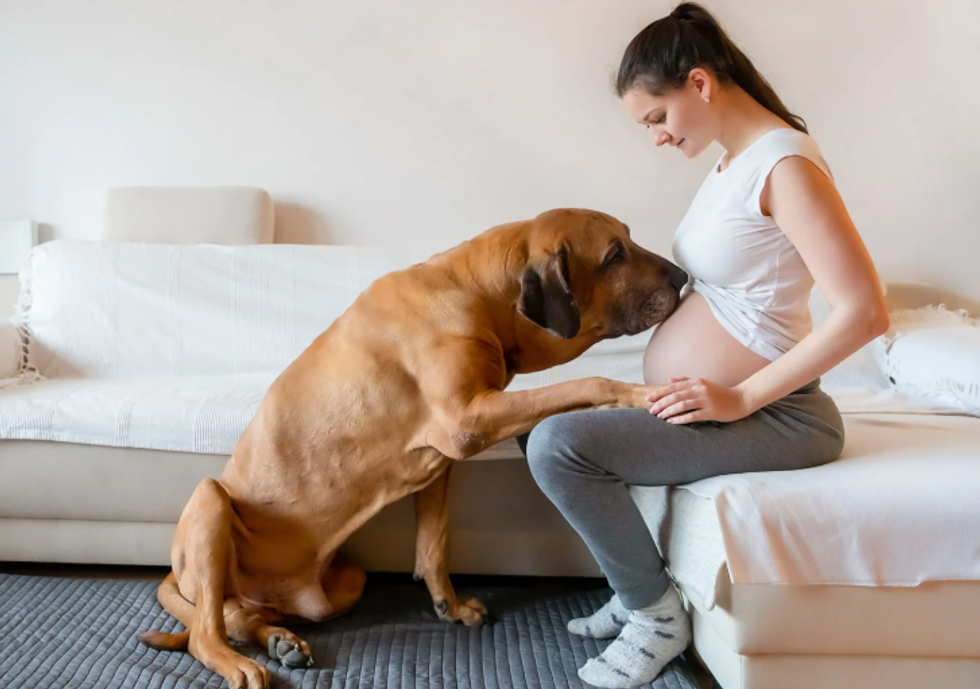 Dogs can detect with something new is going on.Canva
Dogs can detect with something new is going on.Canva
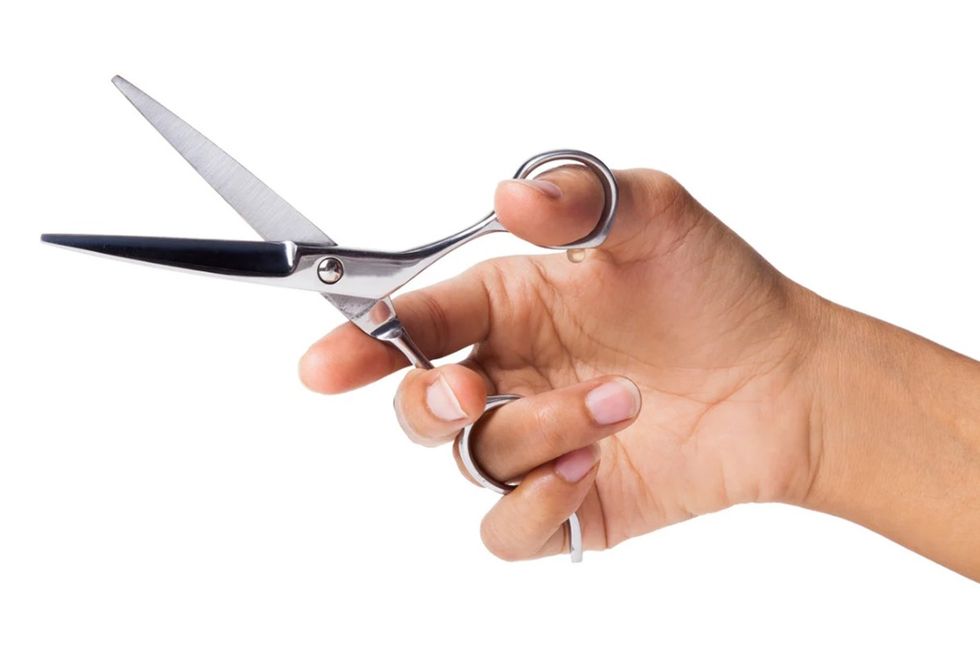 A pair of scissors.
A pair of scissors.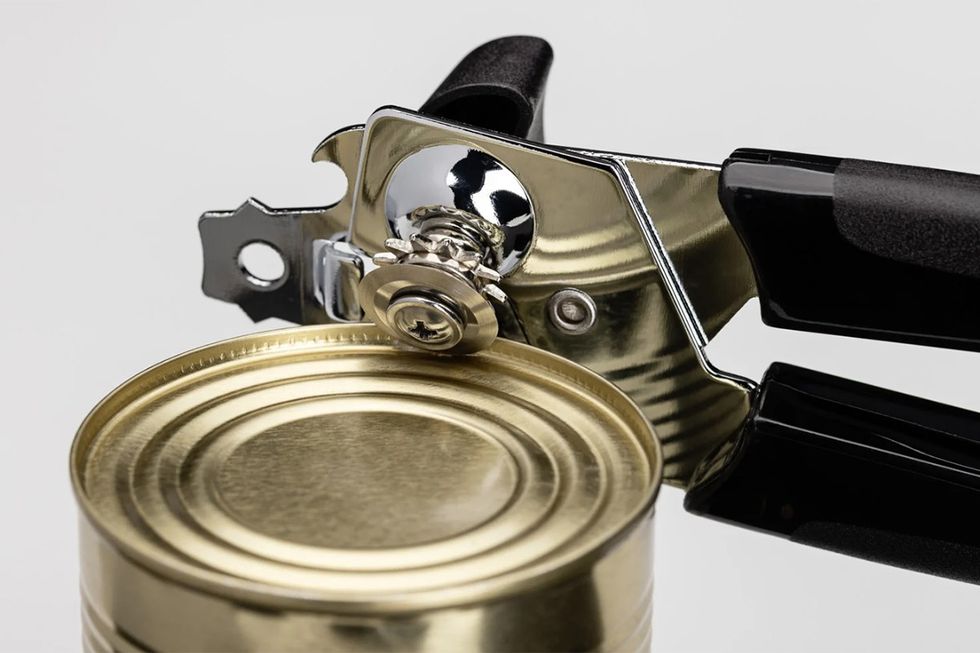 A can opener opening a tin can.
A can opener opening a tin can.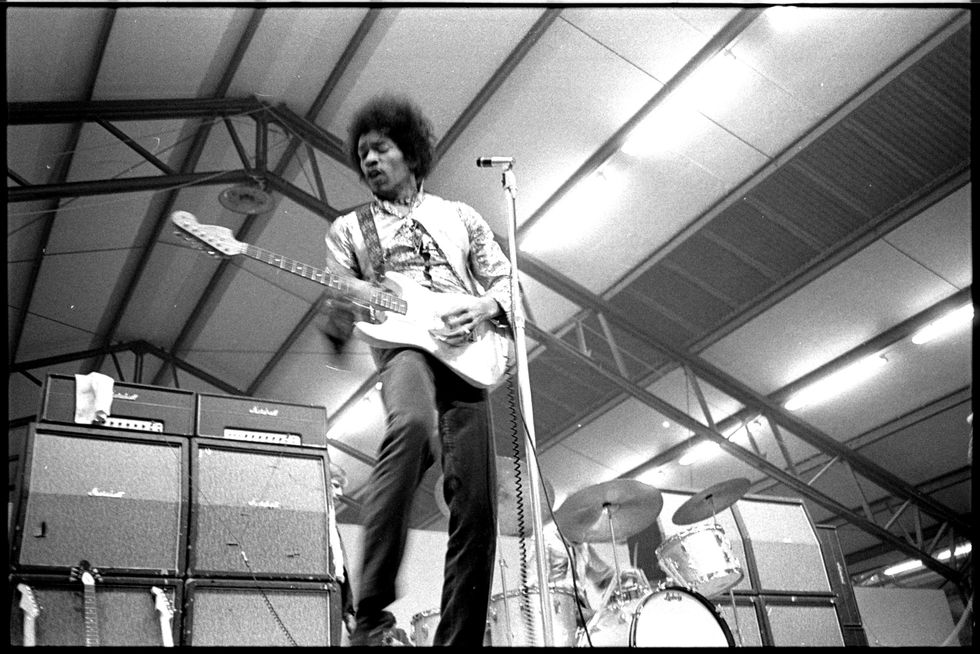 Jimi Hendrix playing on stage.Public Domain
Jimi Hendrix playing on stage.Public Domain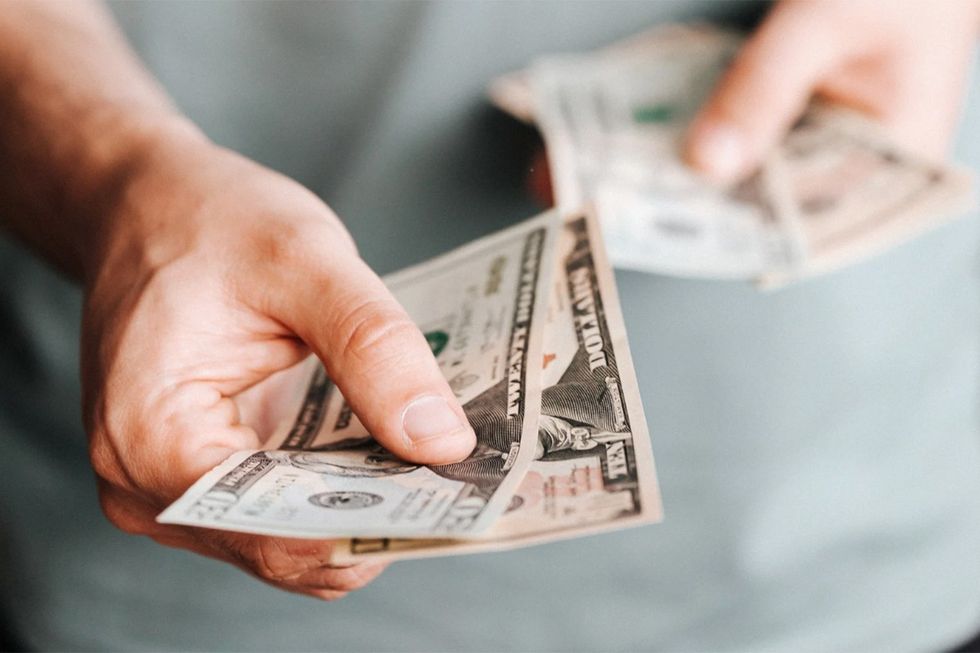 A man handing over $20 in cash.
A man handing over $20 in cash.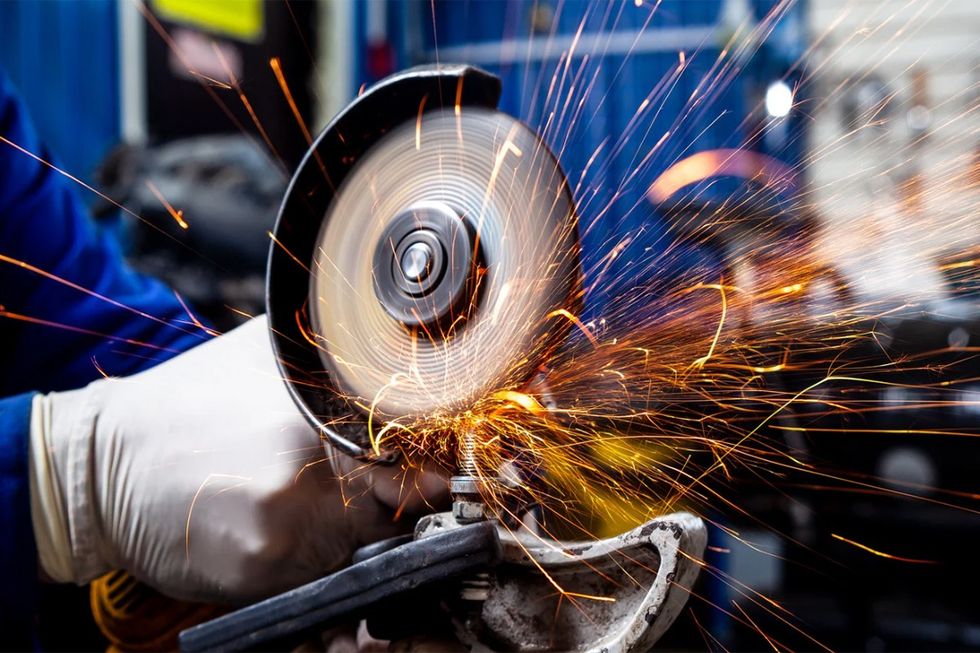 A person using a power saw.
A person using a power saw.
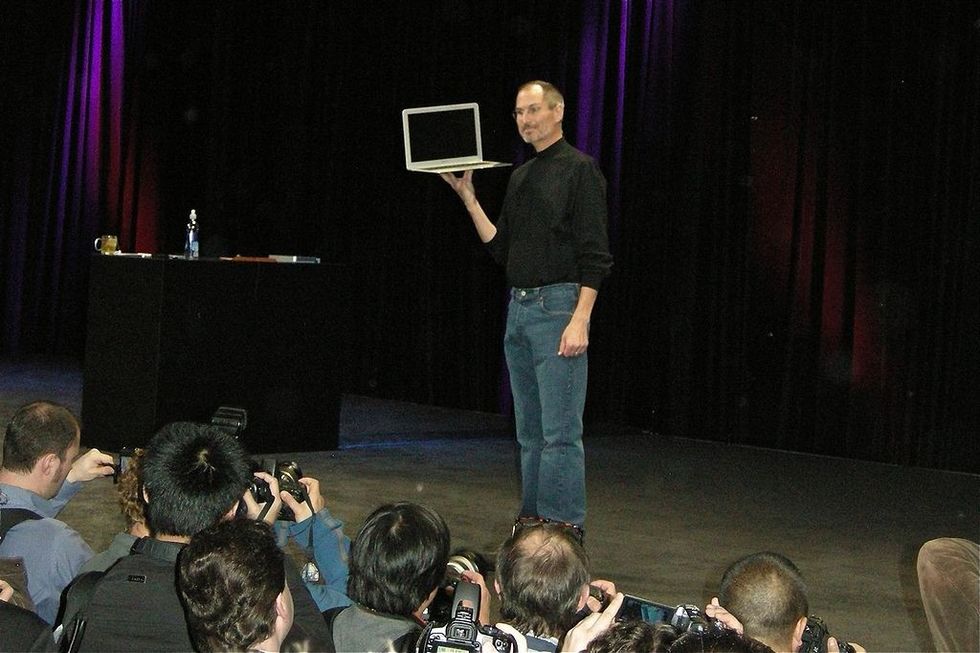 Steve Jobs in his traditional work ensemble.
Steve Jobs in his traditional work ensemble.